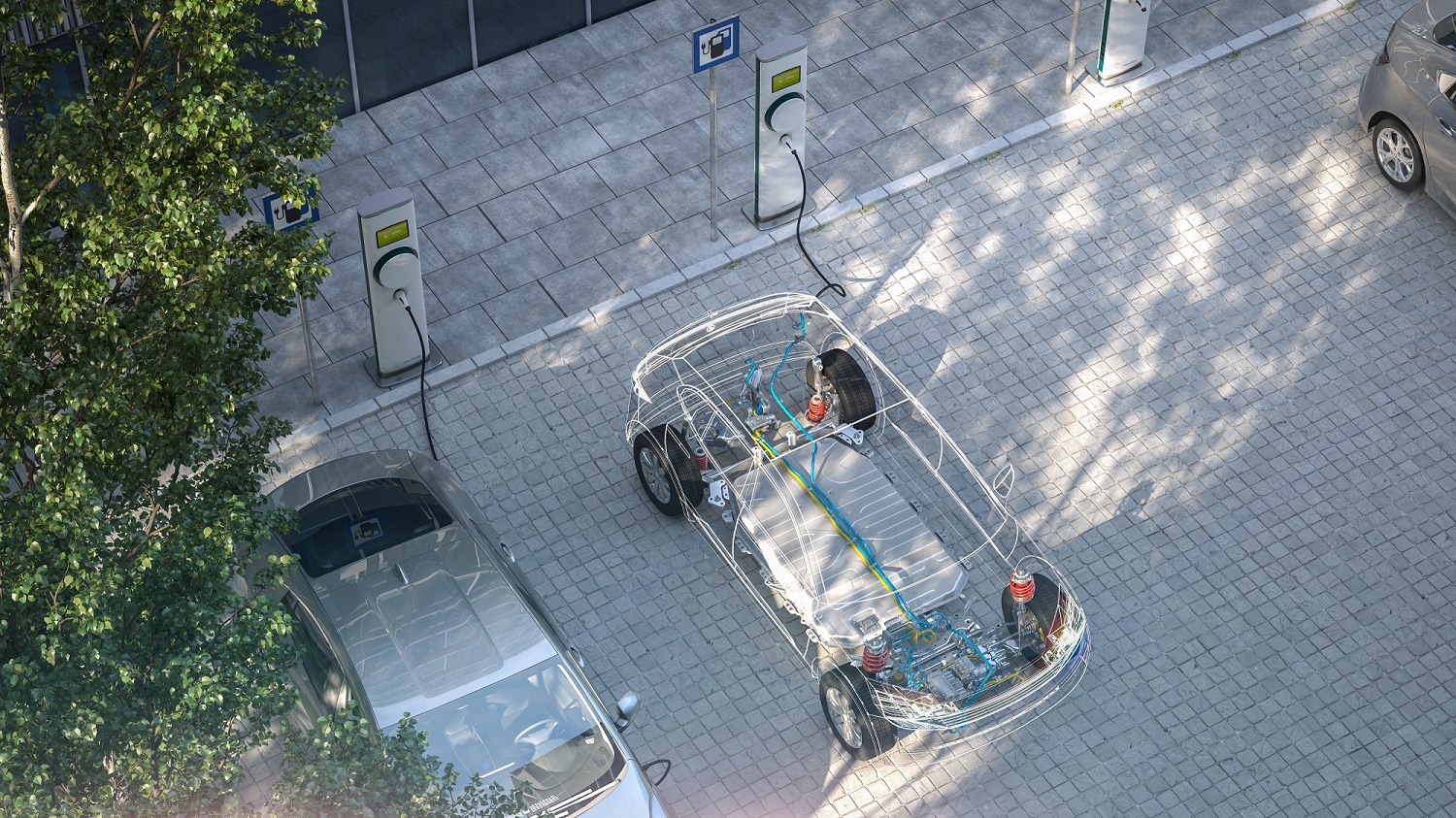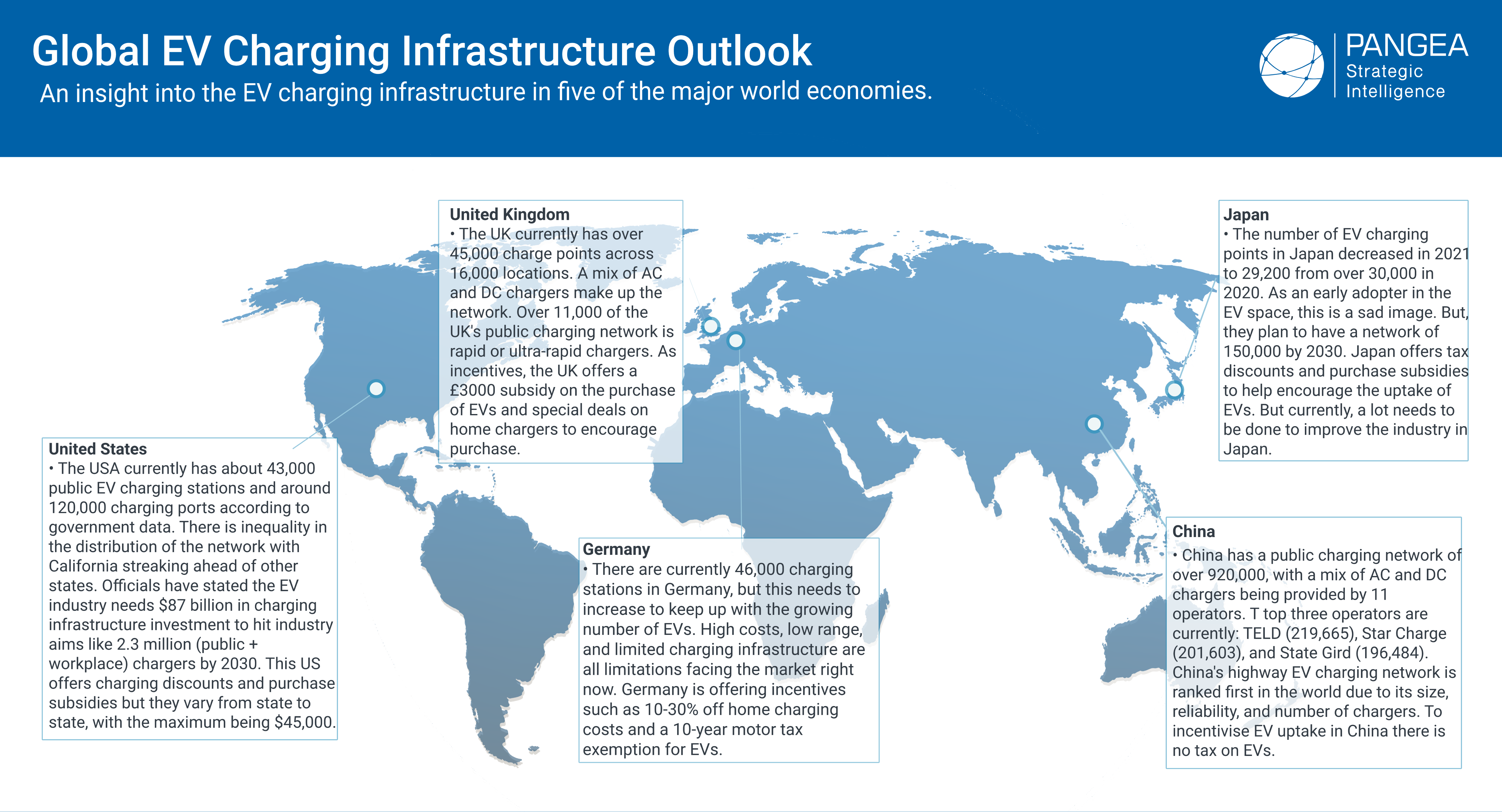The EV charging market is growing at extreme rates. Future market value estimations vary hugely due to many unknown circumstances but the global electric vehicle charging infrastructure market is projected to reach a value between $27-49 Billion by 2027. But, it could be much more. The market is being driven by a variety of factors from the climate to technology developments by charging point leaders such as Tesla.
Overall, technological developments in the automotive sector, price changes of petrol and diesel, and increasing government regulations on CO2 emission are factors encouraging people to purchase low-emission and electric vehicles. Both the private and public sectors are investing heavily in the EV charging infrastructure networks to increase reliability and the number of charging stations. As well as this, multiple EV and EV charging manufacturers are collaborating with charging infrastructure developers to gain the availability of charging stations. Market players are also pumping money into their research and development activities to build cost-effective and faster EV charger types for electric vehicles.
However, this surging growth that the electric charger market is experiencing does not mean there are no challenges. Factors such as infrastructure growth and manufacturing costs still pose threats.
This industry is very competitive with new market entrants on a regular basis. These are some of the current EV charging manufacturing industry leaders. Read here for more insights into EVs and EV charging.

EV charging manufacturing companies and the industry have various challenges and costs facing them.
The largest challenge facing the industry is the high costs of fast electric chargers. Level 3 chargers (rapid chargers) are the future of the industry as they are the answer to another challenge of the industry – charging times. However, the manufacturing costs and implementation of these level 3 chargers can be extremely high. Because of the new technology and high costs of manufacturing these chargers, it then results in higher selling costs. For a person to buy a DC fast charger for their home, the cost can reach as high as $35,000 excluding installation costs. This is simply unaffordable for most people. These current high initial costs of fast level 3 chargers is one of the major challenges facing the industry. It has been estimated the overall costs for Tesla for their Superchargers is between $100,000 – $175,000. Further estimates say in order to make Tesla’s Supercharger network a similar convenience to petrol stations in the United States it would cost around $8 Billion.
These costs are very high, however, as the market continues to become more competitive slowly the costs are reducing. But for now, the manufacturing and customer purchase costs for rapid chargers are too high.
Another one of the challenges facing the manufacturing of EV chargers is the red tape. Governments are trying to break down the barriers for EV charger manufacturers in order to make it easier. Through the design, manufacturing, and installation processes there are barriers with governments, utility providers, business owners, and more that create red tape and it takes time for the company to overcome. Around the world, multiple major governments have put electric car and charging incentives like rebates in place and utility providers want to work with the manufacturers to make the process easier, faster and create a more reliable service.

The future of the EV charging manufacturing industry holds huge potential. There are future developments that are expected to take place in the not to distant future such as new rapid charges like ABB’s Terra 360, infrastructure developments to offer increased reliability and number of charging points, and of course, the reduction in costs of EV chargers to both buy and manufacture.
But, there are also future developments which are less well known about. For example, blockchain. Blockchain can be used for securing digital information and automating the interaction between chargers and users. Blockchain is built on an algorithm to order information and share data. It will provide a framework for different infrastructures and networks to relate with each other and share information to improve reliability. The information from blockchain could allow electric utility providers to balance the infrastructure and electricity grid.
Blockchain is a growing and exciting technology that can automate processes and allow multiple services to work with each other.
Another technology for the industry might be EV wireless charging. This technology could use the current charging infrastructure and would make a more user-friendly experience and solve the challenges of standard charge points for disabled drivers. This technology could be applied to car parks or even the roads themselves in the future…
From 2020 – 2022 in the UK, wireless charging taxis will be piloted. Qualcomm’s Halo induction technology transfers energy from a charging pad on the ground to a charging pad on the underside of the stationary vehicle. This technology would lead to shorter but more often charges allowing vehicles to use a smaller battery, reducing the vehicle’s overall costs.
You can register for free. It is quick and easy and once registered you will get full access to all our premium content.
Just log in and learn, then absorb content covering: